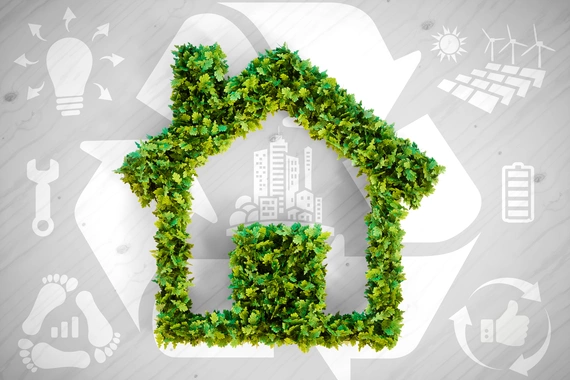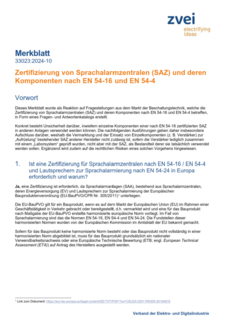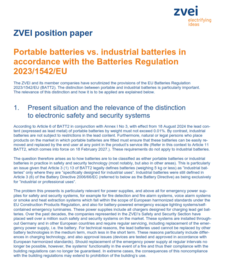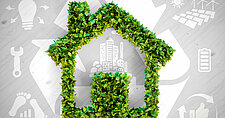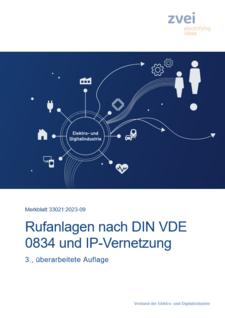17.10.2024
Certification of voice alarm control and indicating equipment (VACIE) and its components to EN 54-16 and EN 54-4
Voice alarm control and indicating equipment (VACIE) is tested and certified as a unit to EN 54-16. The explanatory document…
27.05.2024
Portable batteries vs. industrial batteries in accordance with the Batteries Regulation 2023/1542/EU
Ultimately, all arguments suggest that batteries used in safety and security systems in buildings should continue to qualify as…
08.05.2024
Set Europe Free!
Europe has shackled itself, its citizens and its companies – sometimes unnecessarily. In international competition, it is now important to release the brakes. Only then can the continent realise its full potential. And continue to play at eye-level worldwide.
19.02.2024
Minimization of risk by the controlled replacement of fire detectors
Why do fire detectors have to be replaced? And what is the reason for the requirements in DIN 14675-1?
08.05.2024
Set Europe Free!
Europe has shackled itself, its citizens and its companies – sometimes unnecessarily. In international competition, it is now important to release the brakes. Only then can the continent realise its full potential. And continue to play at eye-level worldwide.
02.02.2022
Buildings 2022: Creating future-oriented conditions
Even in 2021, the buildings sector did not achieve the climate targets set. In 2020, it was the fourth largest emitter in Germany with 120 million tonnes of CO2. The need for renovation of the building stock is therefore enormous - but the potential is just as great. Only a strong focus on electrification and digitalisation in buildings will make them the hub of the energy transition. The course for a successful building transformation and thus the achievement of the climate targets by 2030 and 2045 will be set this year.
22.06.2021
Making EU building stock energy efficient with technologies
ZVEI is in favour of the EU Commission's intention to significantly increase the renovation rate of buildings in Europe. This not only has a positive effect on climate targets, but also gives the entire European population access to buildings with low energy consumption. Increasing the renovation rate is thus also an important step towards increasing energy availability. Technologies that increase the energy efficiency of buildings and improve occupant comfort already exist. The use of energy-efficient technical building equipment (TGA) can make a decisive contribution to achieving climate neutrality by 2050 and reducing greenhouse gas emissions by 55 percent compared to 1990 levels.
Climate-neutral society only works with standardisation
Achieving the transformation to a climate-neutral and sustainable society and economy, while maintaining prosperity, needs the responsible and consistent use of technology and innovation, as well as comprehensive electrification and digitalisation. This requires norms and standards.
17.10.2024
Certification of voice alarm control and indicating equipment (VACIE) and its components to EN 54-16 and EN 54-4
Voice alarm control and indicating equipment (VACIE) is tested and certified as a unit to EN 54-16. The explanatory document…
27.05.2024
Portable batteries vs. industrial batteries in accordance with the Batteries Regulation 2023/1542/EU
Ultimately, all arguments suggest that batteries used in safety and security systems in buildings should continue to qualify as…
19.02.2024
Minimization of risk by the controlled replacement of fire detectors
Why do fire detectors have to be replaced? And what is the reason for the requirements in DIN 14675-1?
30.10.2025
Joint Position Paper on the European Media Freedom Act
Go to article
Download (pdf, 176,89 KB)
01.09.2025
Joint Position Paper on the European Media Freedom Act
Go to article
Download (pdf, 176,89 KB)
02.02.2022
Position paper on the revision of the EU Energy Performance of Buildings Directive (EPBD)
27.01.2020

